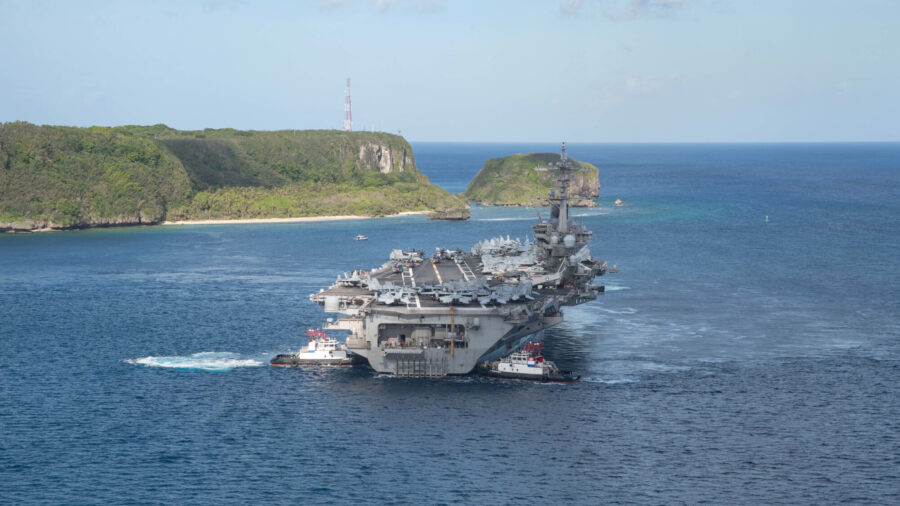The United States needs to ramp up diplomatic ties with Freely Associated States (FAS)—Palau, the Marshall Islands, and Micronesia—to restrict Beijing’s expansionism in the Pacific region, according to a new report.
The United States Institute for Peace said Beijing saw Pacific nations as a “low-investment, high-reward” opportunity.
“China has not focused on the FAS in its influence-building efforts in the Pacific to the degree it has focused on South Pacific nations, but nonetheless is positioning itself to take advantage of any deterioration in U.S.-FAS relations,” the report said.
The Institute also said Beijing was looking to project force beyond the “first island chain” a line of major islands including Japan, Taiwan, and the Philippines.
“As Beijing seeks to develop a true blue water navy (one capable of operating globally), the U.S. right of strategic denial in FAS territorial seas and the forward presence enabled by U.S. defense facilities in and adjacent to FAS territories will grow more important in constraining China’s force projection and maintaining free and open maritime corridors in the Indo-Pacific,” the Institute said.
The report also noted that the FAS, on the whole, was keen to avoid “excessive Chinese influence” in the region that supplants the traditional international partners.
In contrast, the governments of the Solomon Islands, Vanuatu, and Kiribati have ramped up ties with Beijing in recent months, most notably a security pact signed in April between the Solomons Prime Minister Manasseh Sogavare and the Chinese Communist Party.
The pact would allow Chinese naval ships, weapons, and troops to be stationed in the region, ushering in potential militarisation akin to the South China Sea.
Yet governments in the FAS have had to deal with overt incidents of Beijing-linked foreign interference.
In early September, the U.S. Justice Department indicted two naturalised citizens of the Marshall Islands for running a multi-year money laundering and bribery scheme—via a U.N.-linked non-profit organisation—to support the creation of a mini-state within the Pacific country.
Beginning in 2016, Cary Yan and Gina Zhou allegedly paid tens of thousands of dollars in bribes to Marshall Islands officials, including members of the Pacific country’s legislature, in return for supporting a proposed law to create a semi-autonomous region within the Pacific nation called the Rongelap Atoll Special Administration Region.
The special administration region would significantly change the laws of the Rongelap Atoll—which is made up of 61 small islands—to supposedly attract investment and tourism through lower taxes and immigration regulations.
In late October 2018, Zhou is alleged to have provided a $22,000 (US$14,355) interest-free “loan” to one official, while in another instance, one official promised “revenge” against the then-president of the Marshall Islands, Hilda Heine, for opposing the law.
From The Epoch Times

